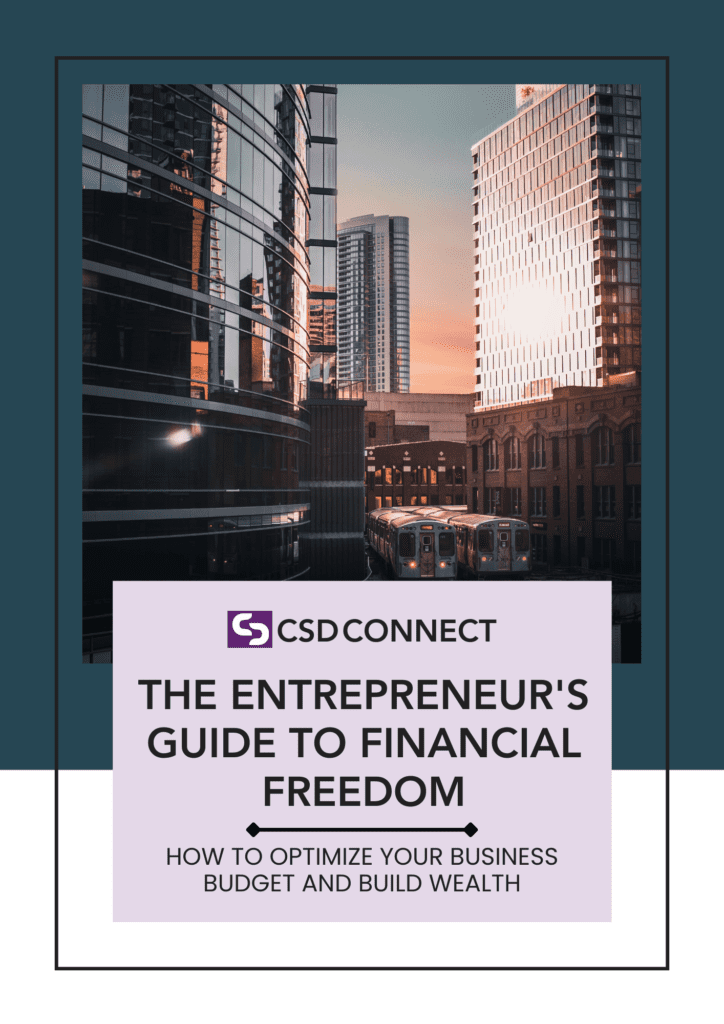If you’ve been in business for a while—or even if you’re just starting out—you probably already know that entrepreneurship isn’t just about passion and hustle. It’s also about math. And money. And managing both with a whole lot of grace and grit.
I’ve been in business for over 15 years. And let me tell you, I’ve learned some hard (and humbling) lessons about financial freedom along the way. If you’re an entrepreneur, especially a creative or service-based business owner, I want to share a few of the things I wish I knew earlier—things that could’ve helped me better prepare for the lows, survive the slow seasons, and build a healthier business from the inside out.
1. Financial Freedom Is More Than Just Making Money
In my early years, I thought being “financially free” meant bringing in big numbers. And while revenue is important, it’s only part of the story. True financial freedom means knowing your numbers, having a solid plan, and being able to breathe even when business is slow.
It’s the difference between surviving and thriving. Between feeling stuck and feeling in control.
2. Emergency Funds Aren’t Just for Your Personal Life
I used to put all my extra income back into the business or use it to “catch up” on life. But when a client didn’t pay on time or a big contract fell through, I felt it immediately. I didn’t have a cushion—and that created stress that impacted every part of my life and business.
Now, I treat my business like the financial engine it is. That means setting aside emergency funds and having multiple income streams that keep cash flowing no matter what the market’s doing.
3. A Bookkeeper Is Worth Their Weight in Gold
If I could go back in time, I would absolutely hire a bookkeeper or accountant earlier in my journey. Someone who understands the tax implications of my business decisions. Someone I can call when things get sticky. Someone who keeps me honest about what’s really going on in my finances—so I’m not operating from vibes and spreadsheets alone.
Even if you’re not ready for a full-time CFO, having a go-to financial expert is a must.
4. Your Financial Statements Are Trying to Talk to You
And trust me—you want to listen.
Your profit and loss, your cash flow statements, your balance sheet… they’re not just paperwork for tax season. They’re tools that can help you make better decisions, plan smarter, and see problems before they become crises.
If you’re not already reviewing your statements monthly, now’s the time to start.
5. Take a Personal Finance Class—Even If You Think You Don’t Need One
Entrepreneurship often blurs the lines between business and personal finance. But what you do with your personal money affects your business growth—and vice versa.
Taking personal finance classes helped me think more clearly about saving, investing, and protecting my income. It also helped me shift from “How do I make more money?” to “How do I make my money work for me?”

Let’s Talk About the Future You Want
If any of this resonates with you—if you’ve felt the stress of uncertainty, the frustration of feast-or-famine months, or the exhaustion of doing everything yourself—I created something to help.

My eBook, The Entrepreneur’s Guide to Financial Freedom, is a guide I wish I had 10 years ago. It walks you through the financial fundamentals in a way that makes sense, whether you’re just getting started or tightening up your systems.
Inside, you’ll find tips on budgeting, managing debt, increasing revenue, preparing for retirement, and building real wealth over time. It’s not just theory—it’s experience, strategy, and heart.
👉🏾 [Get your copy here.]
Let this be the year you build not just a business—but a financially free future.
You’ve got this,
Courtney



